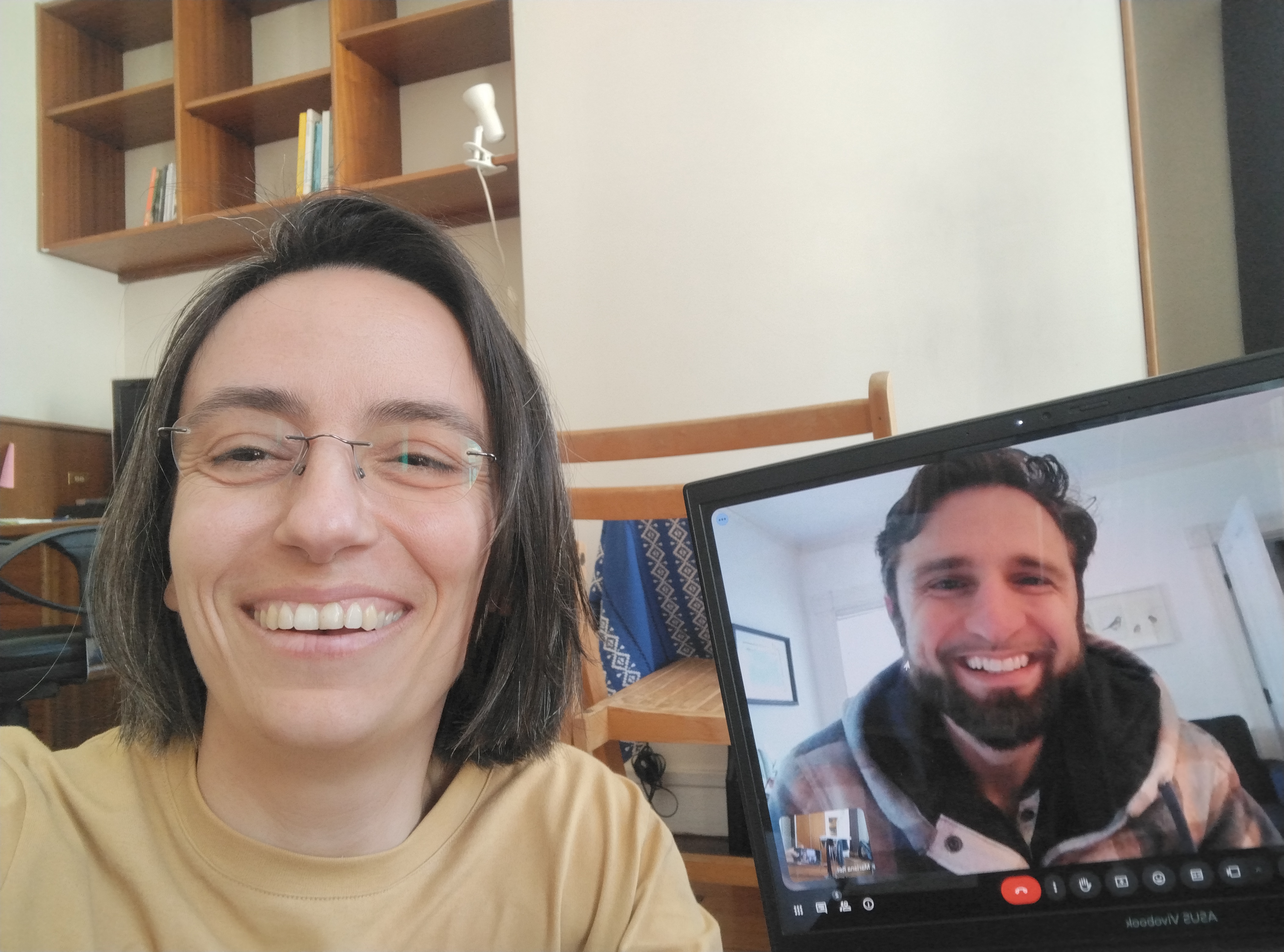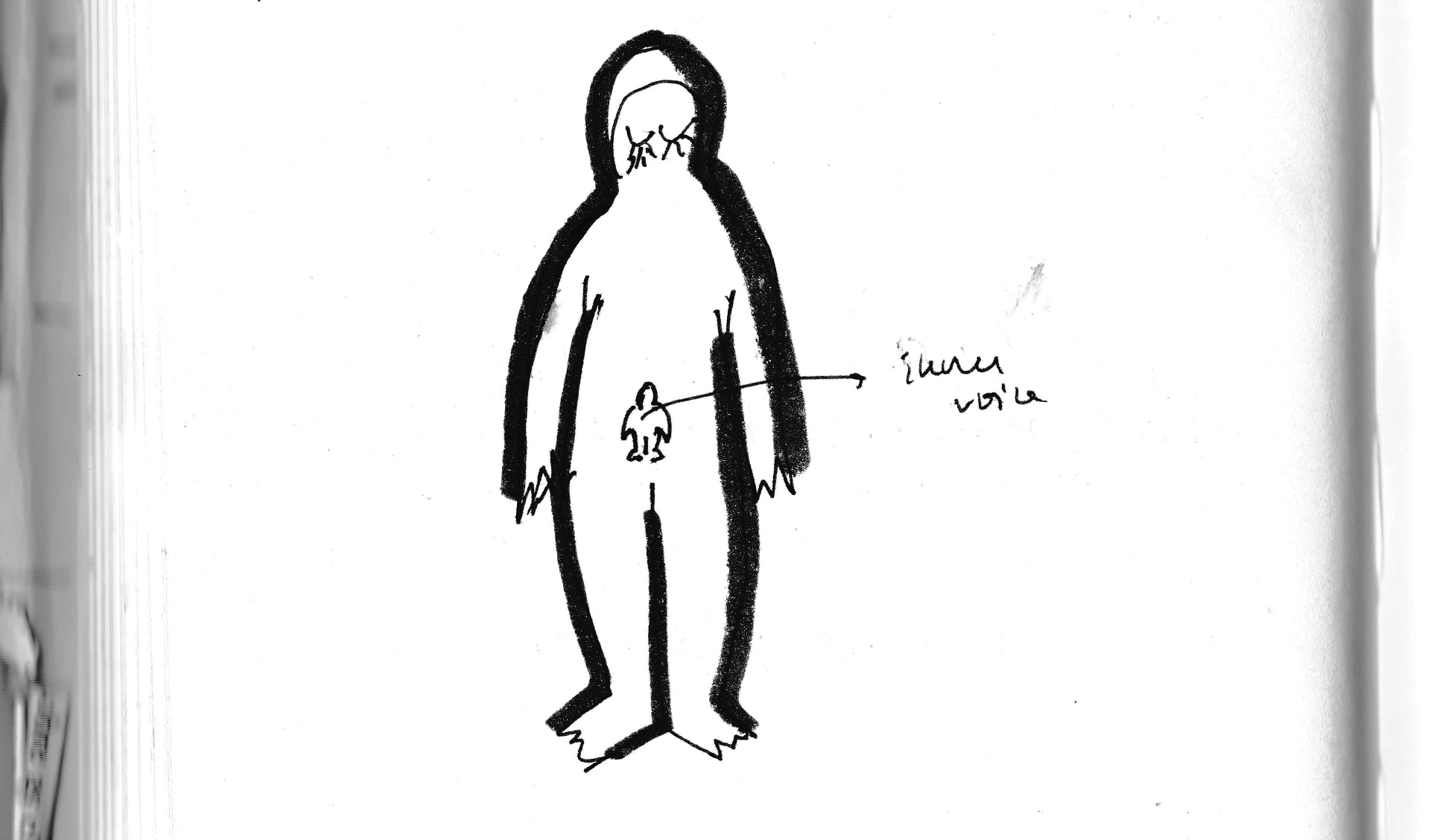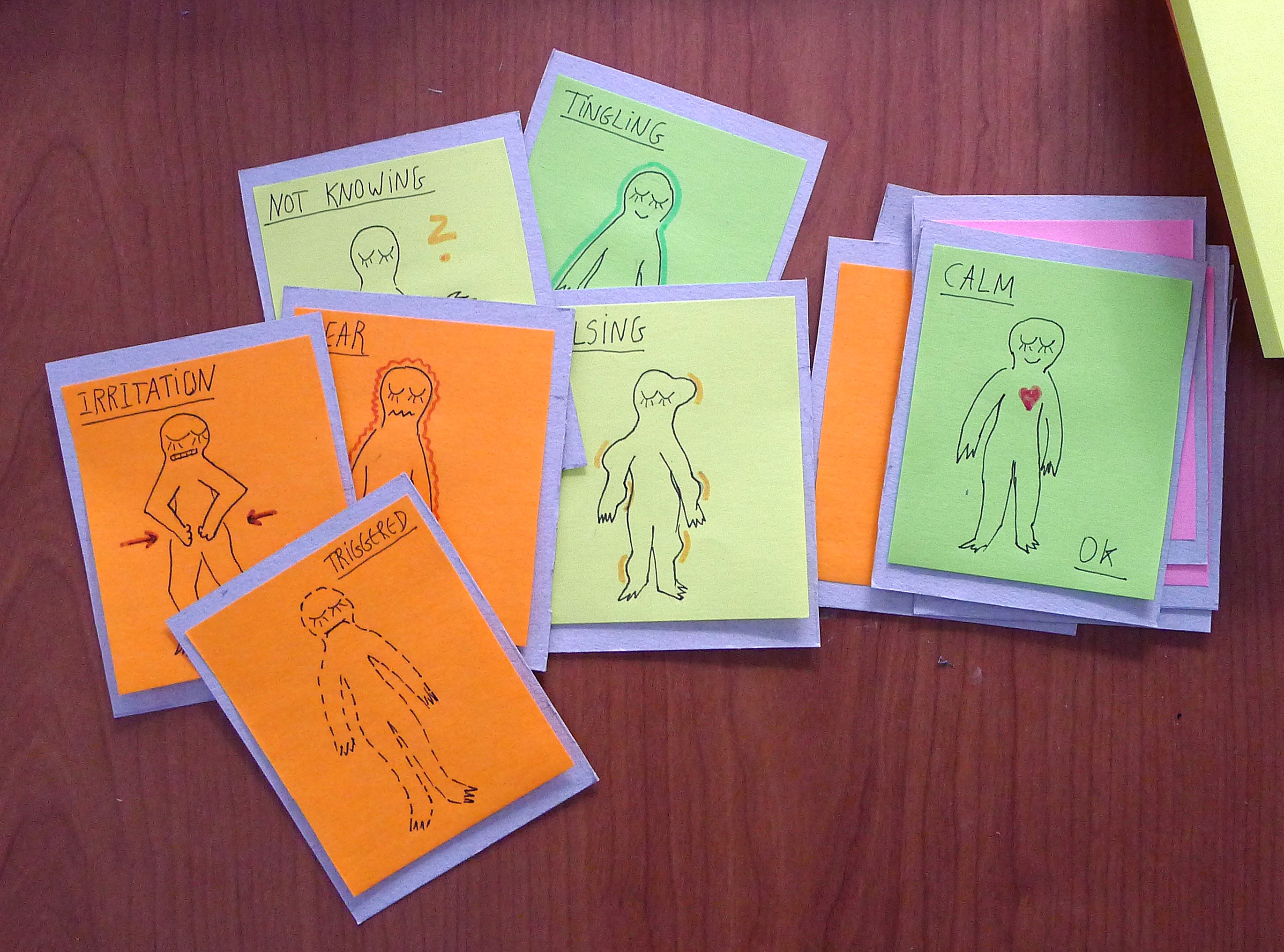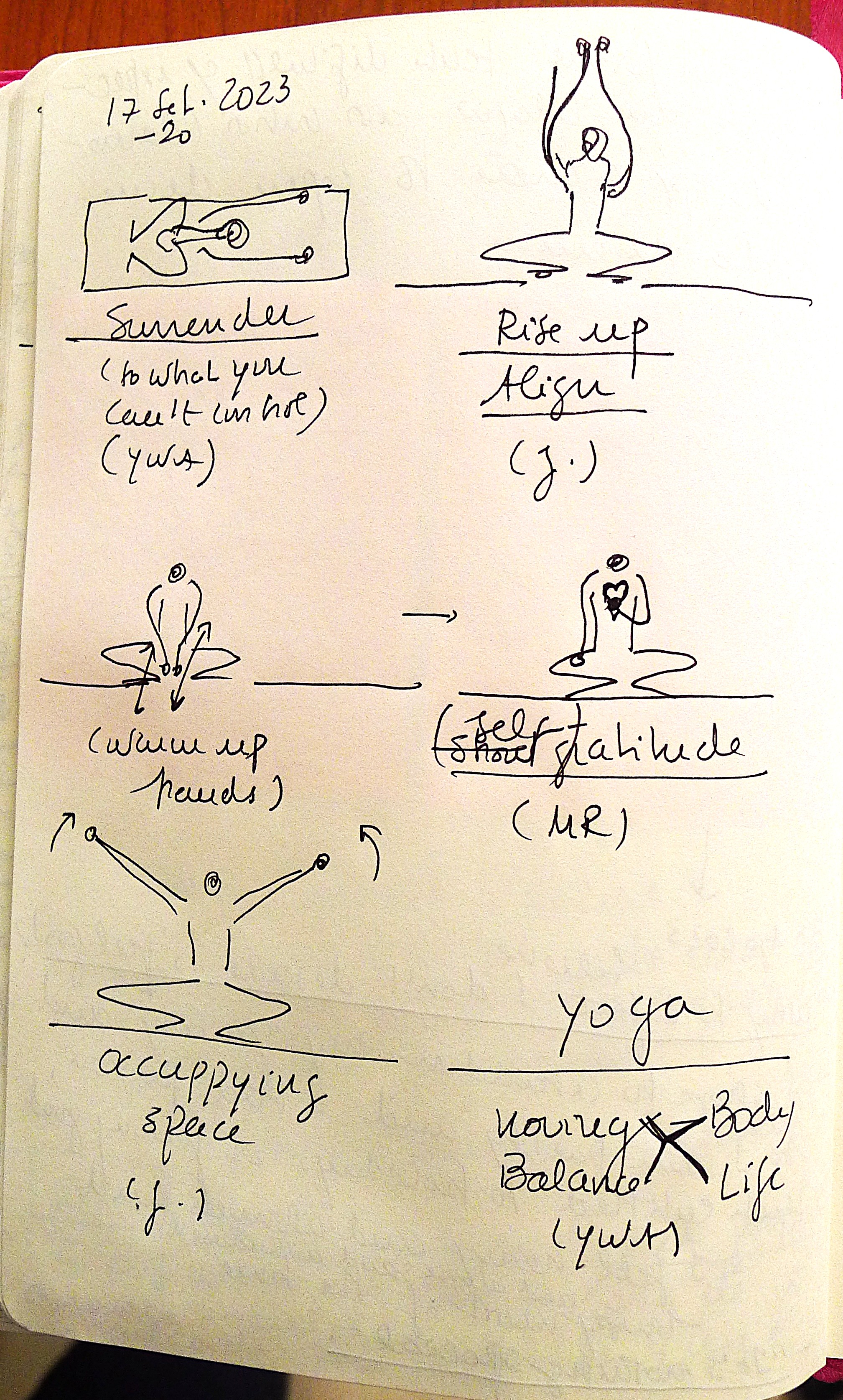“It’s nothing special”: a shared journey into inner experience and the present moment
May 23, 2025Jesse and Mariana met virtually through one-on-one TCTSY coaching. Jesse lived in Massachusetts, USA and Mariana in Sesimbra, Portugal.
Jesse completed the 300-hour TCTSY facilitator program as part of his mental health counseling degree in 2022. Mariana entered TCTSY during a tough, transitional time in her life. The aftermath of the pandemic and challenging family and work relationships had triggered deep fears within her. They met weekly for hour-long individual sessions and decided to publish this reflection as a way to debrief their first year of practice.
In a vulnerable dialogue from the beginning of 2024, we are invited into the ebbs and flows of discomfort and awareness, liberation and patience, and more in their regular TCTSY sessions.

Mariana (participant):
When our TCTSY sessions started, I was so reluctant and afraid to re-enter a therapeutic process. Life made me expect a question like, "what happened to you?”, but you offered a whole different conversation. Questions like “how does that show up in your body?” and “when is that sensation strongest?” were uncomfortable to me at first, and then became more familiar.
Jesse (facilitator):
By the third time we met on zoom, you called my debrief questions “awkward,” haha! We can laugh about it now, but it was awesome you were honest, while I also was unsure if you would continue our sessions!
Mariana:
I am sorry, as that might not have been the best word to express how I felt. That was more about myself actually. I was uncomfortable with not being able to answer your questions. Not answering is hard for me, as I feel I’m failing people. I guess that, in my unconscious mind, I believe my very presence needs to be explained, so I’m driven to answer, to reply, to be available and comply with other people’s expectations.
Jesse:
Your feedback helped shape each session’s balance of check-in, movement, and debrief. I also validated your noticing something being off, even if you could not pinpoint it, which you continue to have the capacity to do - in our relationship, in your body, and in recalling your day-to-day interactions.
Mariana:
Yeah, I trust that inner sensations mean something now, even if I don’t know what my body is saying at first. Early on, I also experienced the fear of not noticing anything and how to be okay with it. As we moved on the mat, I started learning how fear, indecision, confusion, irritation - but also calm, relaxation, rest, enthusiasm - show up in my body. With this new awareness came a new vocabulary. We put words to sensations in English, a language that is not my first: tingling, pulsing, shaking, etc.
Jesse:
The language barrier was liberating in a way - we really got curious, didn’t we? Thanks for not being shy about clarifying. A theme emerged from your words that we began to call the “it’s nothing special” theme. As you began to notice aspects of your body, this phrase represented a trauma response in which you downplay your own needs and sensations. Our work on somatic awareness in the present moment became a consistent practice space for life, rather than addressing stressors directly.
Mariana:
In our sessions - unlike previous healthcare experiences - I don’t feel the need to explain myself. Rather than “being helped”, I am offered a trust-building experience. That’s deeply validating and transformational.
Jesse:
Right, right. And it’s two-ways! By facilitating, I had my own experience, too. We moved with some of the body shapes and sensations that came with your experiences and in our relationship: rigidity, cowering, avoidance, connectedness, closedness, irritation, opening, and more.
Mariana:
As I found awareness of specific sensations, and as we practiced choice, I started to recognize body sensations in my daily life. At the same time, I also observed the beginnings of a shift in my inner voice. My actions and thoughts can come as a result of a choice rather than from triggering or avoidance. I am still seeking the part in me that might be able to answer your prompt: “What supports you to deserve to feel good?”

Jesse:
That is a bold question for all of us, really. I bring it from a lineage of activists organizing for more joy, rest and pleasure in our world.
About 6 months in, you began to bring an example of how you made a choice about your own needs in the past few days. Sometimes it still began as “nothing special,” but more and more you were noticing the implementation of body-first awareness as difficult, worthwhile, and freeing.
Through poetry and drawings, you communicated things that did not come up in the session that related to our movement. It was cool to choose some of these drawaings of sensations that corresponded to things like boundaries or indecision.
Mariana:
It was important for me to share some of that, be known more, and lead our discussions deeper where my growing curiosity led.
I came to our sessions with my fears and discomforts, still present, but what I bring home with me is hope. A hope that I can move with and through those fears, and move past indecision.
How can we move, in and off the mat, from indecision to choice-making? How can we move from fear to trust? From what’s out of our control, to our inner gut? How can I challenge my narrative and beliefs, and embody a more cohesive sense of self? How can we foster balance, rest, breath, body connection?
Jesse:
Your questions resonate with me about what was core to our practice.
I remember we ended one session with dancing-like “liberation” and others with “permission to slow down” through rest and breath. Your work through your bodily sensations has opened up unique ways for you to notice what is present with less judgement.
You wrote to me in a moment of pride about your ability to take a small (but significant!) action with a familiar sensation:
“Today I felt so irritated by a situation, I didn't feel like that since that session of ours a while ago.
It felt unbearable/stuck, in my body, I just wanted to scream. It was due to a small thing in my day, but felt so strong in my body.
I decided to stop all the (many) tasks at hand, and turn to the mat. I did my usual 20 min meditation (bodyscan), and fell asleep in the middle of it (the night was short). I woke up calm!
It's empowering, to be able to recognize the sensation in my body (irritation) and deal with it in other ways. Turn to the mat, sit (and sleep xD) with the feeling!
Seems small and easy, but it's huge! Thanks!”
Mariana:
It was so true! I am deeply grateful for this experience. To you, Jesse, for creating this safe, comfortable, warming space to move in. Thank you for asking different types of questions, and not giving up on them, with patience, generosity, creativity, and more.
Thank you also for showing me that healing might be possible for me, and that there are other ways to therapy, where we can face our challenges while feeling good (and better) after each session. I am so grateful, finally, to the TCTSY, for making this unique opportunity in my healing journey possible, even being from afar. Good things have no borders.
Jesse:
Thank you, Mariana, for your ability to see empowerment in my patience, rather than pressure for something to show up. I am amazed at how you grappled and asked your own questions. I sense the beginnings of an incredible shift in how you flex your curiosity and observation - from intellectual “knowing” to inner awareness. I remain in awe at how we arrived at insights, all of which I gained right alongside you.
I am glad to be entrusted with this work by the Center for Trauma and Embodiment team and by you, Mariana. In a year that brought trauma to the forefront across identities and borders - real and imagined - you and I were fortunate to have this safe enough space to engage in practice and presence.



